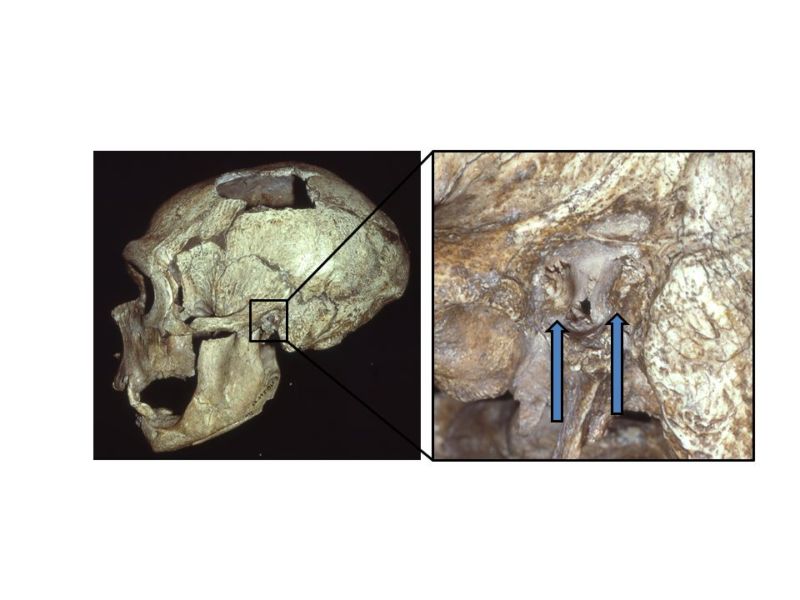Neanderthals suffered from a veritable epidemic of swimmer’s ear
Anthropologists still aren’t sure what the finding says about Neanderthal life.

Enlarge / The arrows point to bony growths called external auditory exostoses, or swimmer's ear, in the skull of a Neanderthal from La Chapelle-aux-Saints, in France. (credit: Erik Trinkaus)
Swimmer's ear happens when constant exposure to cold water irritates tissues in the ear canal, causing bony growths to form. As its name implies, it commonly shows up in people who spend a lot of time in the water. But it also shows up in almost half of Neanderthal skulls from Eurasia, according to a recent study.
Washington University paleoanthropologist Erik Trinkaus and his colleagues studied fossils, digital scans, photographs, and other archaeologists' reports from 77 Neanderthals and Homo sapiens who lived in Europe and Asia during the Pleistocene. Based on this sampling of remains with preserved inner ear bones, a surprising number of Neanderthals were running around Pleistocene Eurasia with swimmer's ear.
Lifestyles of the cold, damp, and windy
You won't get swimmer's ear from a single cold-water surfing trip. It takes long-term exposure to cold water or cold, damp air for the irritation to actually reshape the bone. If you're looking at a skeleton, swimmer's ear is the kind of trait that can tell you something about a person's habits in life. Anthropologists still aren't exactly sure what swimmer's ear tells us about Neanderthals' lifestyle, but it may have something to do with genetics, hygiene, and a taste for shellfish.
